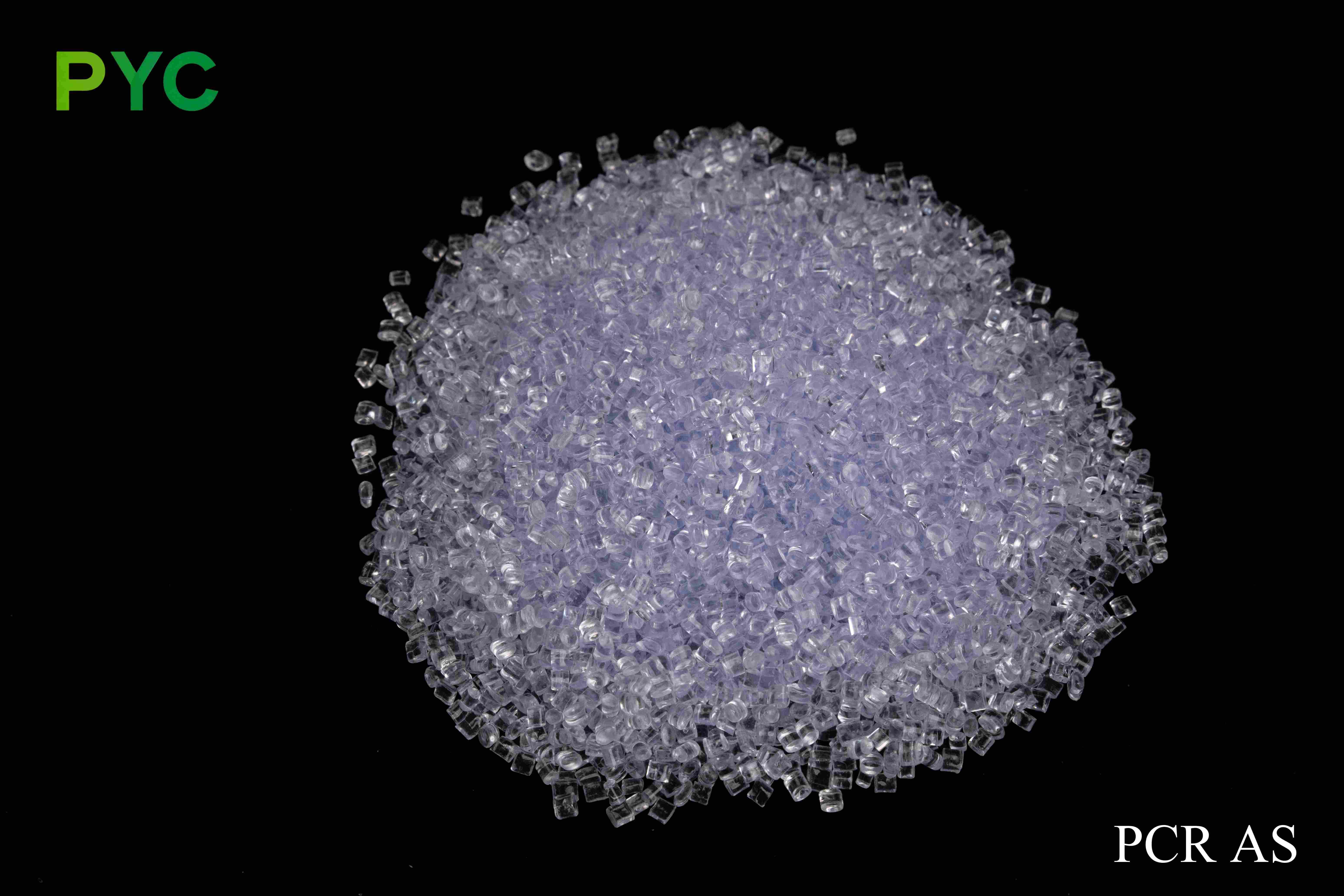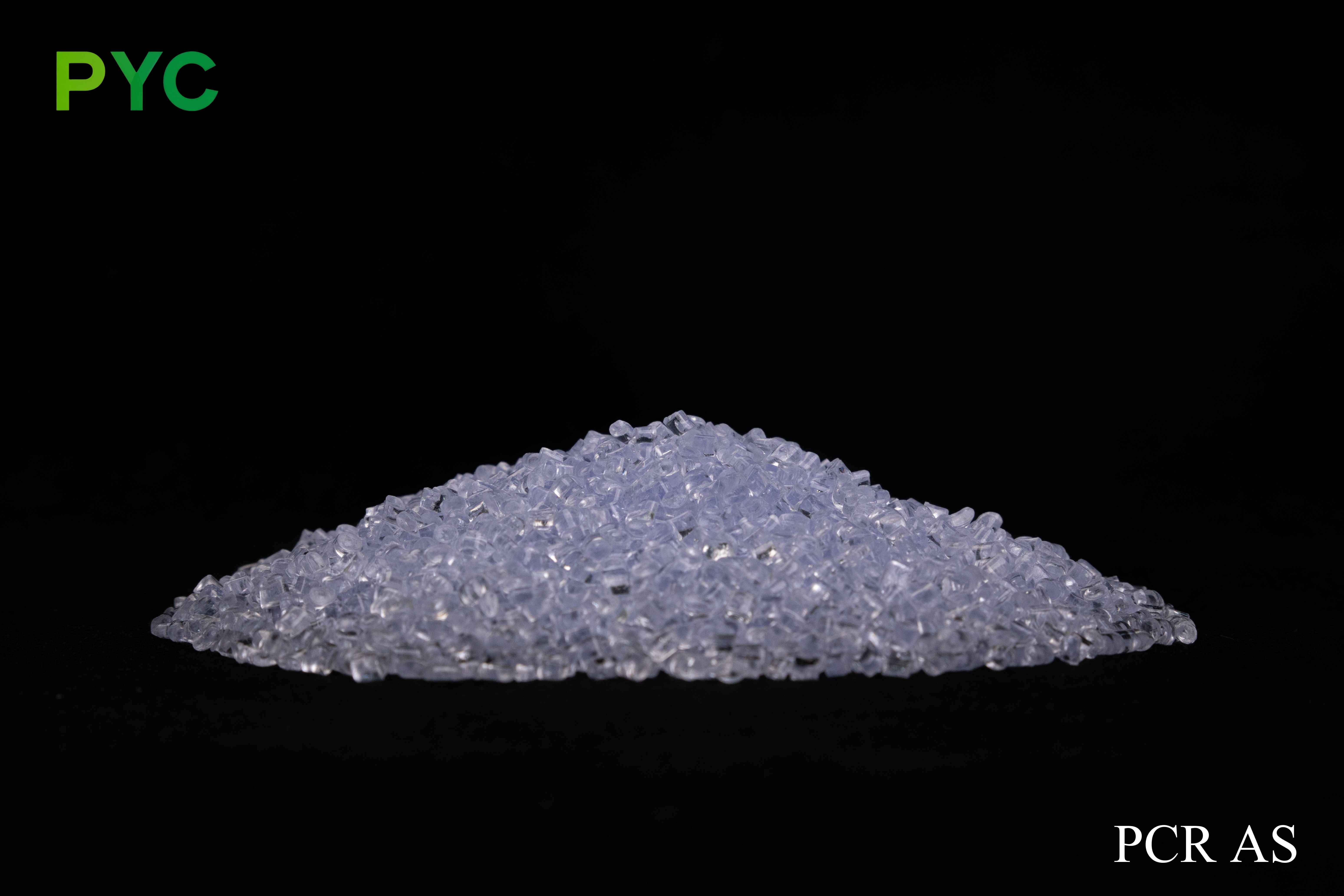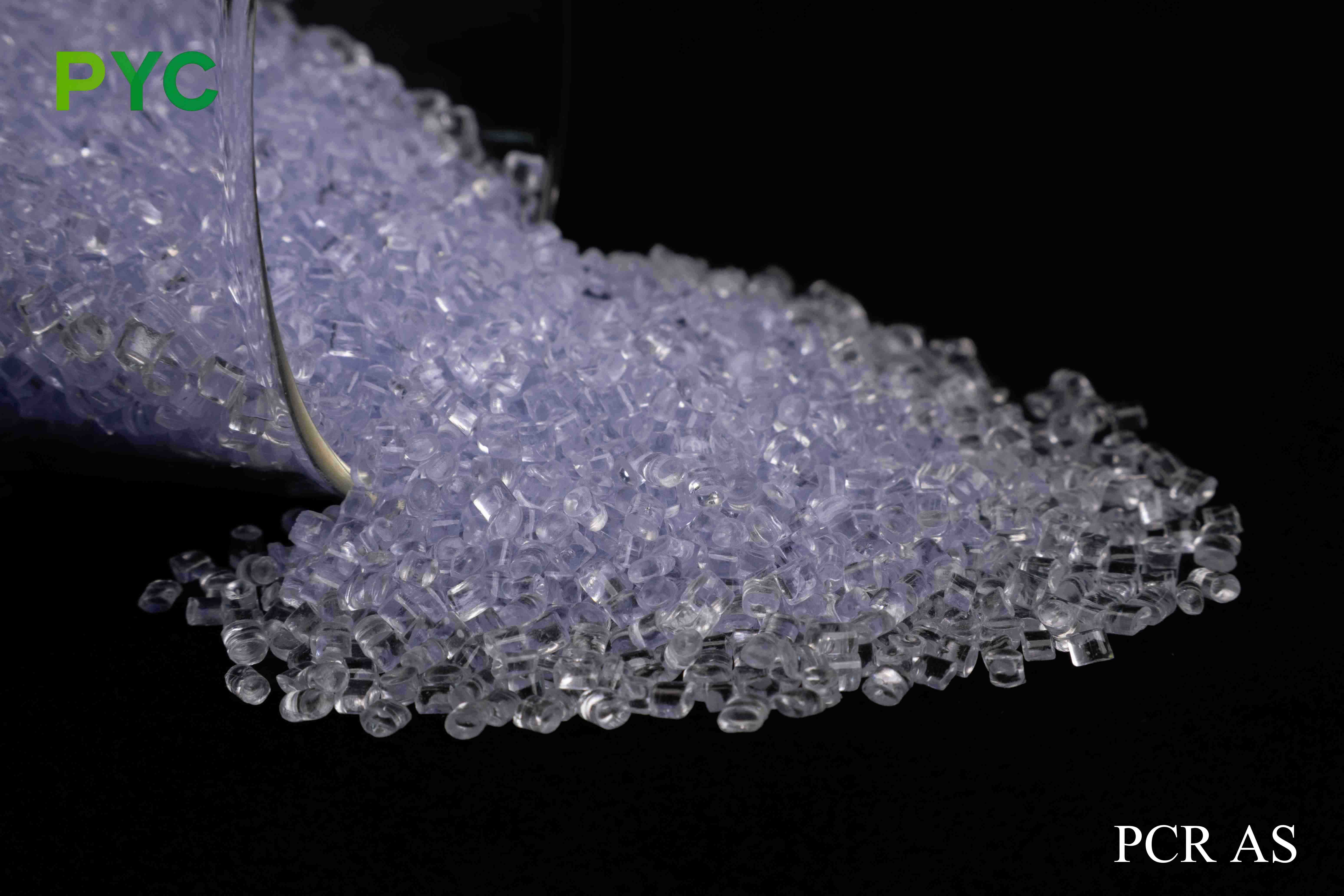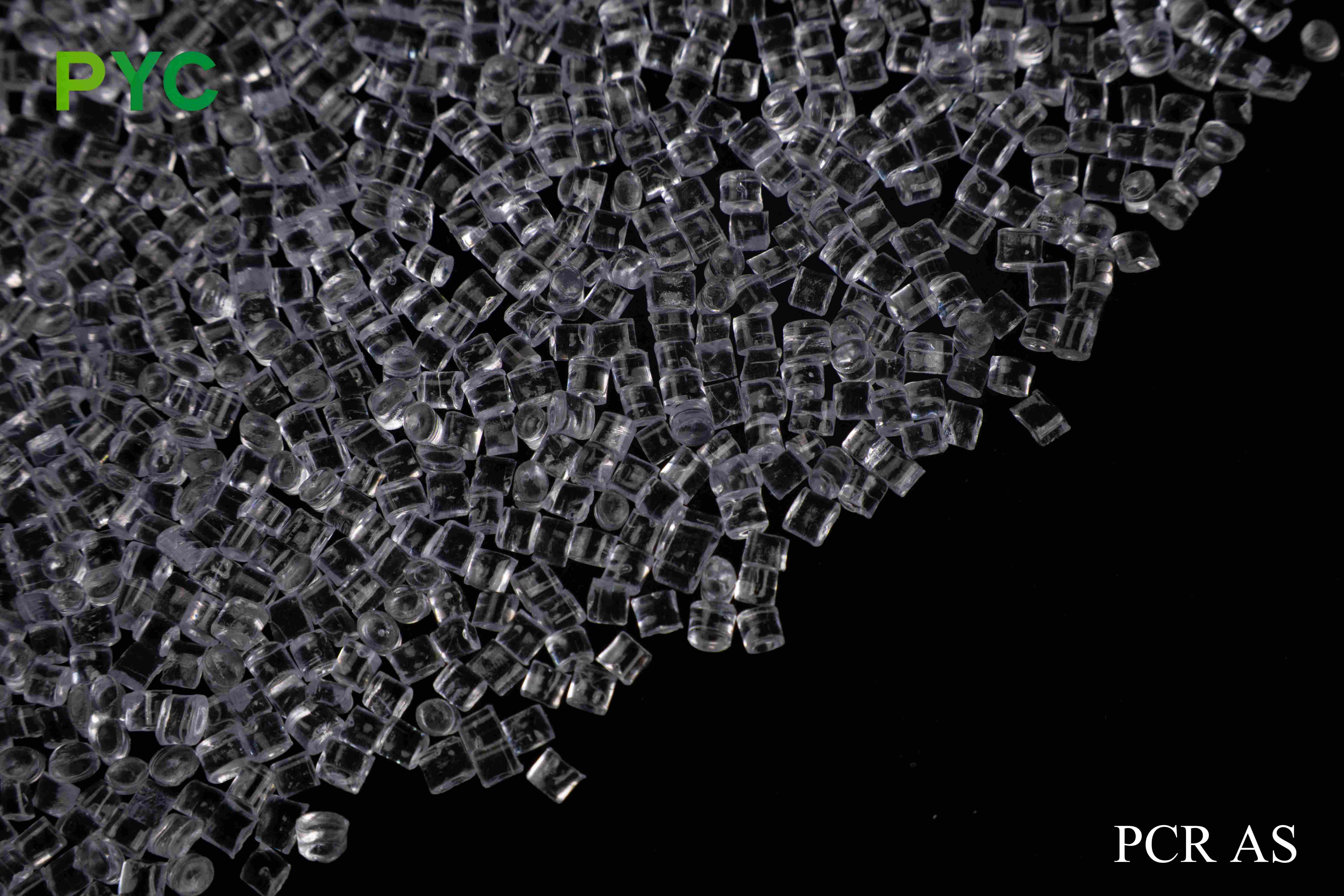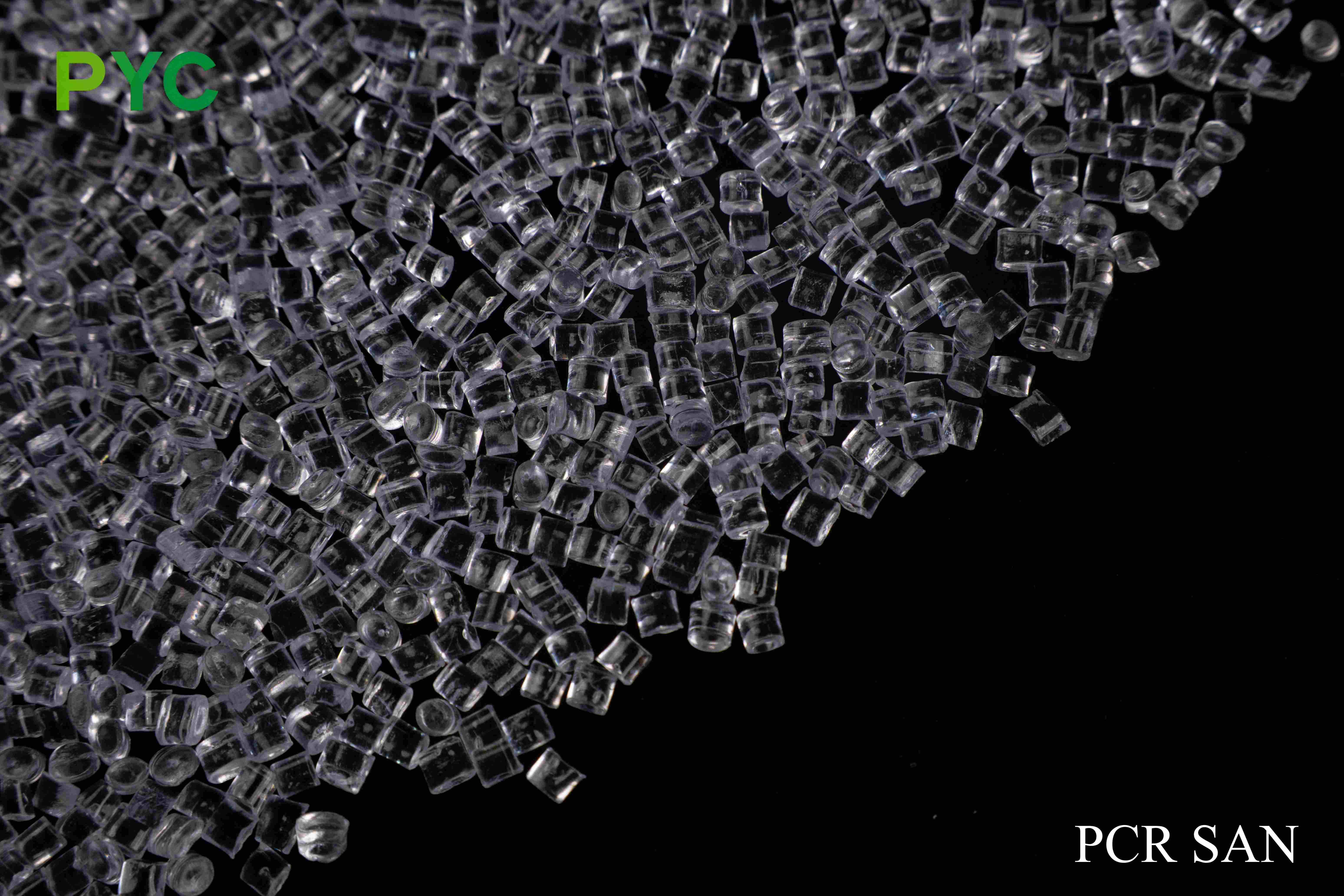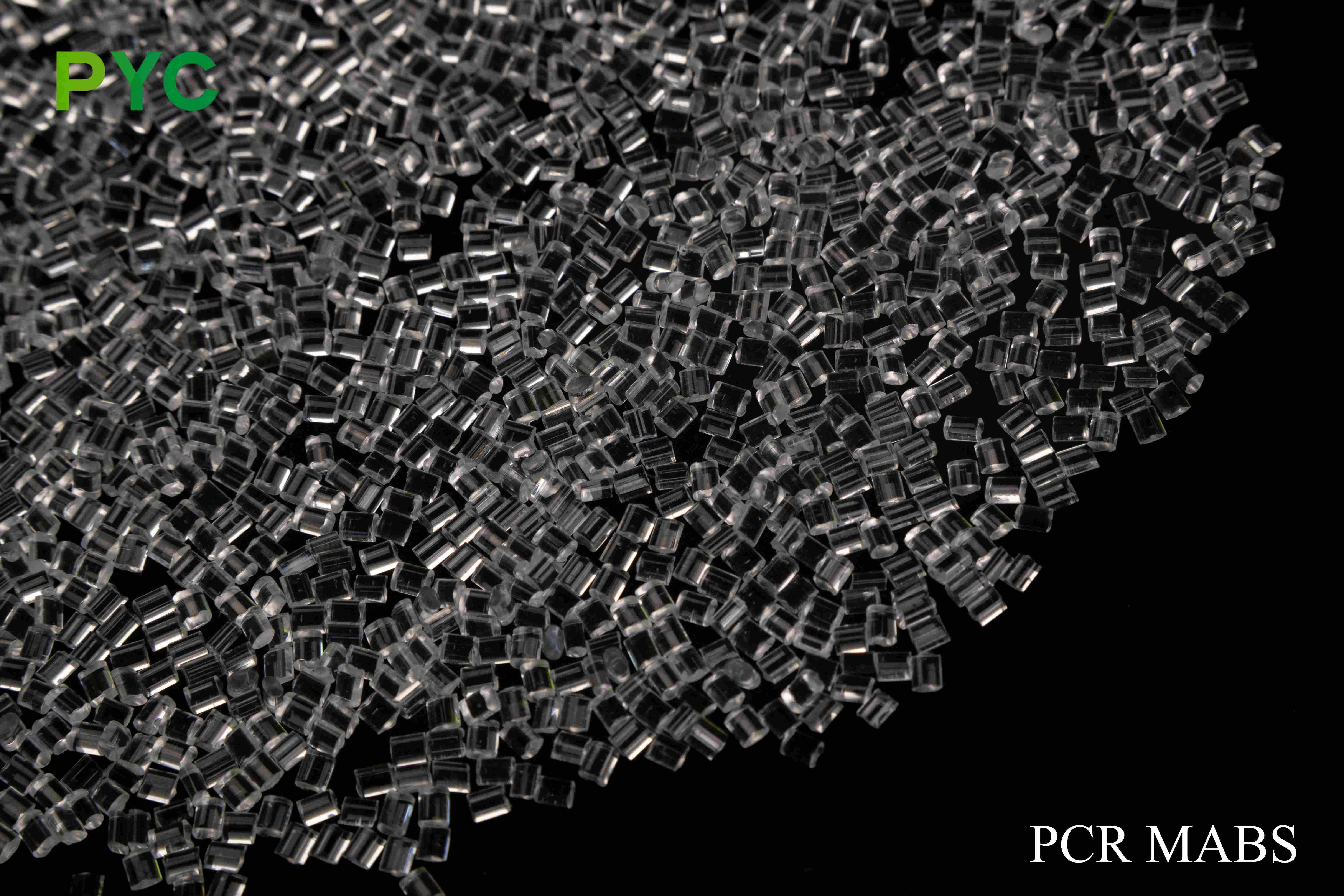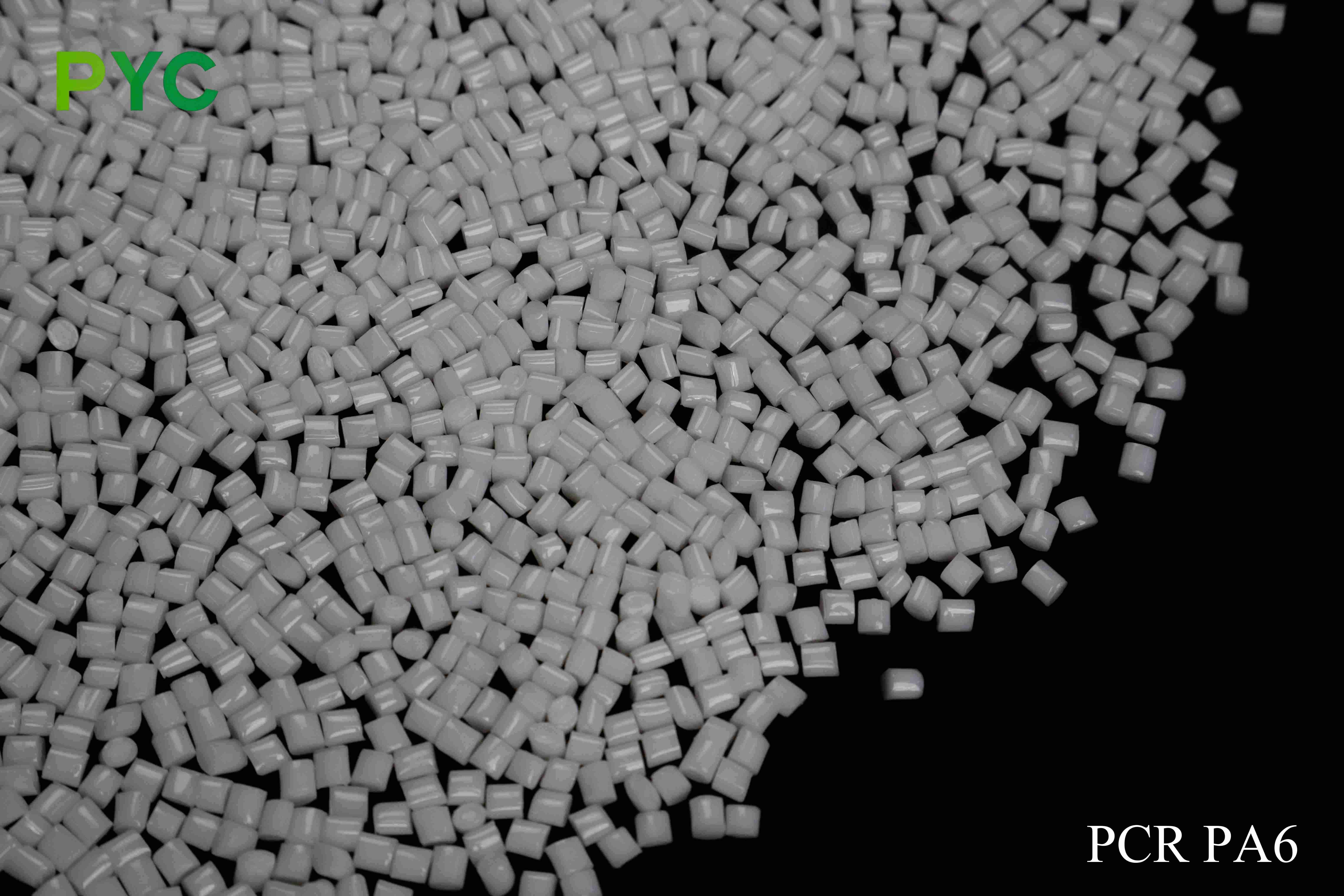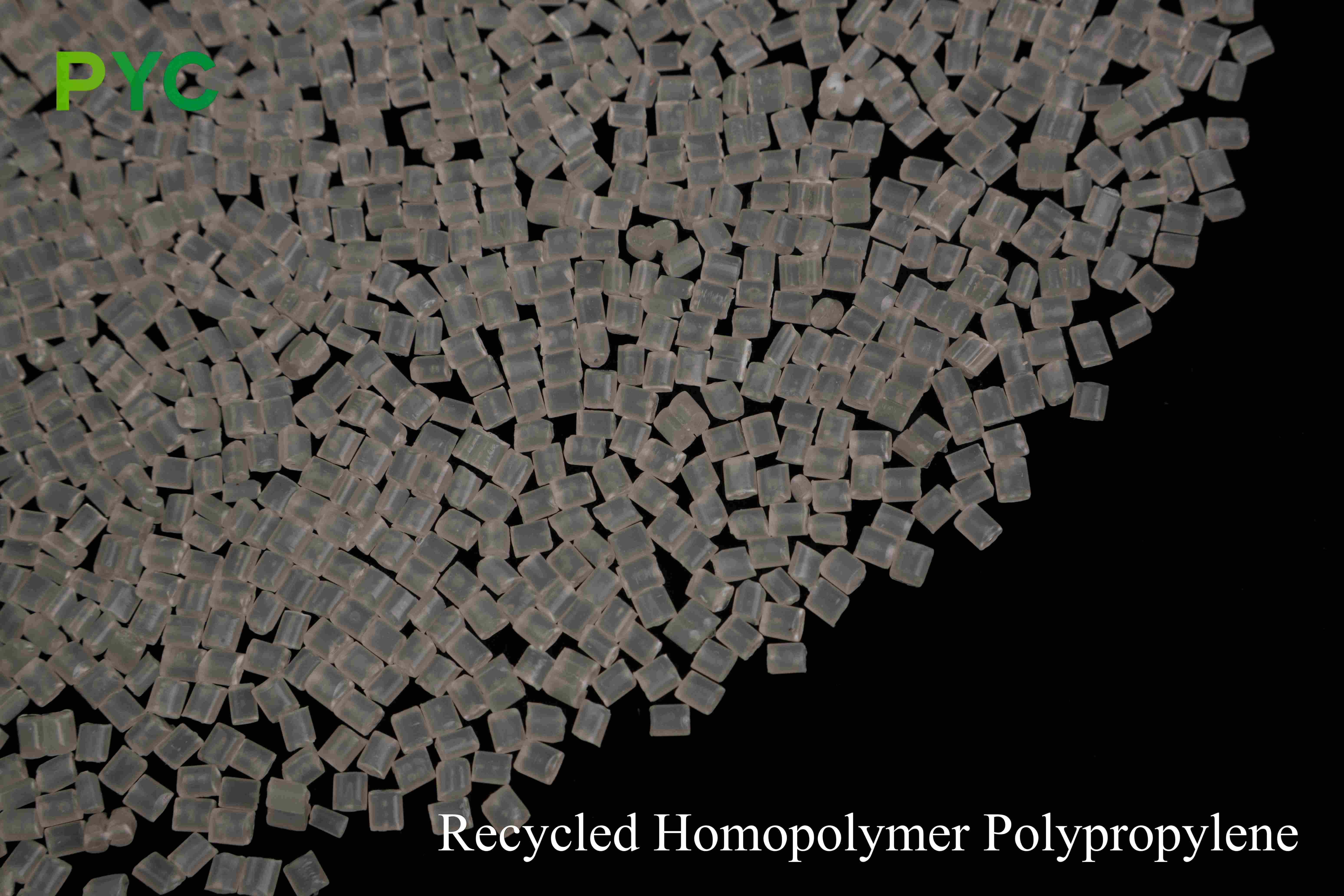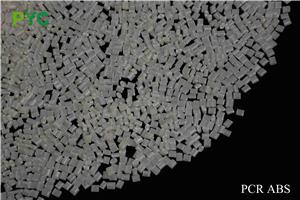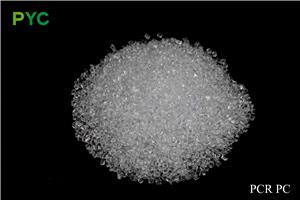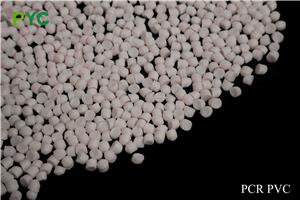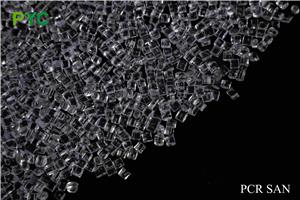PCR AS

PCR AS is a styrene-acrylonitrile (AS) plastic made by recycling post-consumer materials. This material uses recycled post-consumer plastic waste to produce plastic products with high quality, environmentally friendly advantages and is widely used in multiple industries, especially those requiring impact resistance, high transparency and good heat resistance.
Product Details:
High quality recycled raw materials
PCR AS refers to engineering plastics produced by recycling waste AS (acrylonitrile styrene copolymer) materials after consumer use. AS has excellent weather resistance, UV resistance and chemical corrosion resistance, so it is widely used in automotive, construction, electronics, home appliances and packaging fields. The sources of high-quality recycled raw materials for PCR AS mainly come from the following fields:
Scrap car exterior parts
AS is widely used in the automotive industry, especially in automotive exterior trim parts (such as bumpers, roofs, exterior trim strips, etc.), because it has excellent UV resistance and weather resistance. These auto exterior trim parts can be disposed of by recycling when they are scrapped or renewed. AS parts in discarded cars are disassembled, cleaned and sorted to become high-quality PCR AS raw materials.
Examples of recycling sources:
Car bumpers
Exterior trim strips
Exterior frame of the roof or Windows of the car
Car exterior trim panels
Decorative materials for building facades
In the construction industry, AS is used to make exterior wall decorative materials such as window frames, roof panels, exterior wall cladding, etc. These building facade materials are weather-resistant and can withstand the test of sun exposure and harsh climates. AS buildings are renovated or demolished, discarded AS exterior materials become an important source of recycling. After recycling, these building materials can be converted into PCR AS for use in new building projects or other product manufacturing.
Examples of recycled sources:
Exterior trim board
Roofing materials
Construction window frames
Balcony railings
Electronics enclosures
Many electronic products, such AS TV, stereo, air conditioning, refrigerator, etc., use AS material as the shell, because it has strong anti-ultraviolet, anti-ultraviolet and chemical corrosion resistance. With the end of the product life cycle, the discarded electronic product housing has become one of the main sources of PCR AS. After cleaning, crushing, screening and other treatment, the recycled electronic product shell can be converted into high-quality PCR AS raw materials.
Examples of recycled sources:
TV housing
Housing for appliances (e.g. air conditioner, refrigerator)
Enclosures for electronics such as stereos and computers
Enclosures for electronic accessories
Scrap appliance parts
In the home appliance industry, many electrical products, such AS air conditioners, refrigerators, washing machines, microwave ovens, etc., also use AS materials as shells or parts. With the elimination or scrapping of home appliances, the AS in these used home appliance parts are recycled and converted into PCR AS raw materials. After the waste appliances are recycled, they are usually disassembled, cleaned and sorted to ensure the high quality and purity of the recycled materials.
Examples of recycling sources:
Home appliance casings (e.g. washing machines, air conditioners)
Refrigerator casings and parts
Microwave case
Appliance accessories
Scrap packaging materials
Some high-end packaging materials (e.g. packaging for food, electronics, etc.) use AS, especially in packaging containers that require higher strength and weather resistance. These packaging materials become a source of recycled raw materials as the product ends its use. The recycling of packaging materials not only reduces plastic waste, but also provides the industry with an environmentally friendly raw material choice.
Examples of recycling sources:
Electronics packaging
High-end appliance packaging
Uv protective film or container
Box and outer packaging
Recycling process
Recycled PCR AS material is generally processed through the following steps:
Preliminary screening and sorting: The discarded AS material is initially screened by manual or mechanical means to remove the AS material and impurities.
Cleaning and decontamination: cleaning oil, dyes, labels and other impurities in the waste to ensure the purity of raw materials.
Crushing and granulation: The cleaned material is broken and granulated to be converted into plastic particles that can be reprocessed.
Quality testing: The recycled PCR AS is subjected to a series of quality control tests to ensure that its tensile strength, weather resistance, UV resistance, etc. meet industry standards.
Strict quality control
PCR AS carries out strict quality testing in the production process, including the testing of melt index (MFI), impact strength, tensile strength and transparency and other indicators, to ensure that every batch of products meet high standards of performance requirements. The product can maintain its transparency, impact resistance and high temperature resistance during use, and adapt to different application needs.
Environmental protection and sustainability:
AS a recycled material, PCR AS helps to reduce the accumulation of plastic waste and meets global environmental protection and sustainability standards. The use of recycled materials not only reduces the demand for natural resources, but also reduces carbon dioxide emissions during the production process, which is an important way for enterprises to achieve green production.
Excellent transparency and impact resistance:
PCR AS has good transparency and is suitable for products requiring high transparency, and is widely used in the manufacture of transparent shells, display boxes and so on. At the same time, its excellent impact resistance can effectively reduce damage and protect product content during transportation and use.
High temperature resistance:
PCR AS has good heat resistance and can maintain stable physical properties in high temperature environment, so it is suitable for some application scenarios that need high temperature resistance, such as automotive interior, electronic product shell and so on.
Wide application fields:
PCR AS is widely used in multiple industries, especially in areas where transparency, impact resistance and heat resistance are required. Common applications include:
Packaging industry: Used to manufacture transparent packaging materials, display boxes, etc.
Electronic industry: For the production of electronic products, such as the shell, protective cover and other components.
Automotive industry: Suitable for automotive interior parts, dashboards and other parts that require high transparency and impact resistance.
Home appliance industry: Used to manufacture home appliance housings and other transparent parts.
Application:
The transparency and impact resistance of PCR AS make it widely used in packaging, automotive, electronic products and other industries. Especially in products requiring heat resistance, impact resistance and transparent appearance, PCR AS shows unique advantages.
Performance and advantages:
The main advantages of PCR AS are its excellent transparency, impact resistance and high temperature resistance, making it an ideal choice for transparent materials. In addition, the recycling properties of PCR AS also make it competitive in a market with increasingly stringent environmental requirements.
Production and technical advantages:
The production process of PCR AS adheres to strict environmental standards, uses recycling technology to reduce waste and reduce dependence on raw materials. Through the optimized production process, the high quality and high performance of the material are ensured, which can be adapted to various molding methods (such as injection molding, extrusion, etc.).
Environmentally friendly and cost effective:
PCR AS a recycled material helps reduce the environmental burden of plastic waste. Compared with the use of raw materials, the use of recycled materials can not only reduce production costs, but also enhance the sustainable development capacity of enterprises, in line with the trend of green economy.
PCR AS has become the material of choice used by more and more industries due to its excellent transparency, impact resistance and environmental protection properties. It not only promotes the development of circular economy, but also provides enterprises with more environmentally friendly and economical production solutions.

